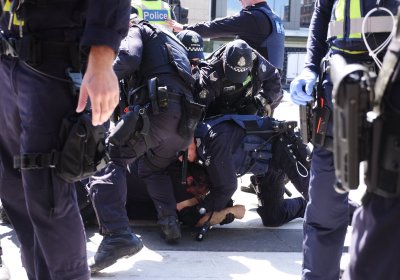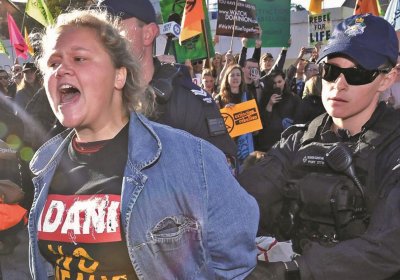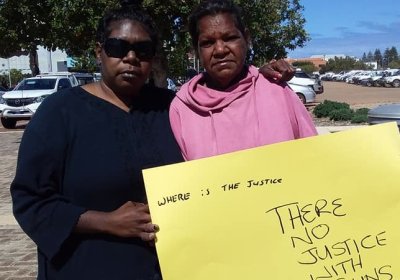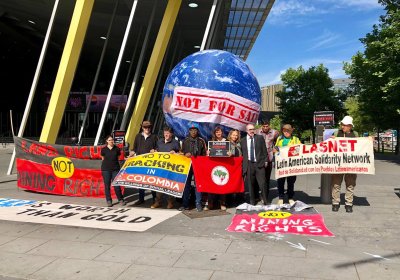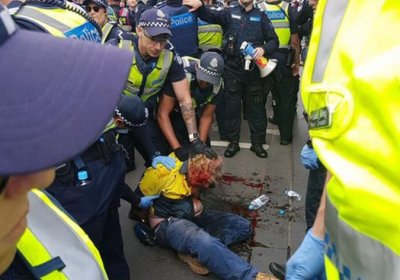Some have argued that although abolishing the police is the best option, such a scenario is not viable. Yet such a scenario already exists in Rojava, writes Hawzhin Azeez.
Police forces, police powers and policing
That two police officers have been condemned for inappropriate conduct indicates that public backlash over the police violence has had an effect. But for the government and police, it is a good way to deflect attention from the role the police play in society.
Unsurprisingly, a debate has broken out within the relatively new Extinction Rebellion movement on the role of the police in society and, more specifically, the tactics towards police at protests.
Yamatji First Nation members gathered in front of Geraldton police station on September 18 to vent their outrage and grief over the death of 29-year-old sister Joyce Clark, who was shot dead the night before by a police officer on the outskirts of the town.
Tanya Louise Day was a strong Yorta Yorta woman who stood up for Aboriginal families whose loved ones had died in prison or police custody. She died from head injuries sustained in Castlemaine police station, in regional Victoria, on December 22, 2017.
Sex workers in Queensland are campaigning to decriminalise sex work 30 years after this was recommended by the Fitzgerald Inquiry into state police corruption.
Several activists involved in the protests against the International Mining And Resources Conference (IMARC) 2018 last October had their homes raided and searched by Victoria Police on January 18. They were arrested, detained and interrogated and had phones, computers and other belongings seized.
Talk has once again resurfaced about extending police powers and militarising police forces after a violent brawl outside a pub in Collingwood, Victoria, earlier this month. But many are asking just how far governments are willing to go in sacrificing freedoms for an ill-conceived notion of being “tough on crime”.
A crime wave is sweeping Melbourne caused by “out-of control African gangs”’ if we are to believe Channel 7, Prime Minister Malcolm Turnbull, Coalition MPs and even Victorian police minister Lisa Neville, who claimed: “This core group of African youth are causing huge fear.”
In a dawn raid on May 4, about 20 police descended on protesters, who had set up tents on the lawn in front of Hobart’s Parliament House to protest the state government’s lack of response to Hobart’s housing crisis, and ordered them to move on.
You could be forgiven for thinking that the Victorian state government’s March 29 announcement to arm its police with semi-automatic, military-grade weapons was an early April Fool’s joke.
After all, the announcement came in the aftermath of yet another mass shooting in the United States. It also came after the Crime Statistics Agency published data on March 15 showing that crime rates have fallen by 9.9%.
Victoria Police are being used by the state Labor government to threaten and harass protesters who have been organising in support of asylum seekers on Manus Island. Activists described the behaviour of the police at a recent rally as state sanctioned violence.
On November 24, a neo-Nazi grabbed the rally microphone and began screaming into it that refugees were rapists and that they should not be bought to Australia.
- Previous page
- Page 5
- Next page

